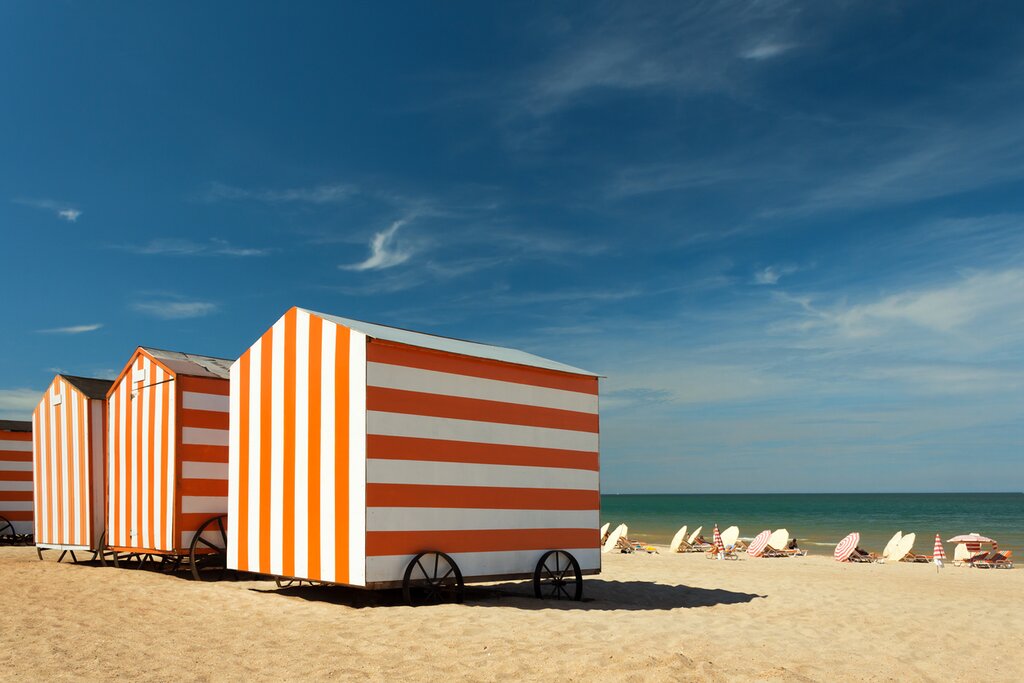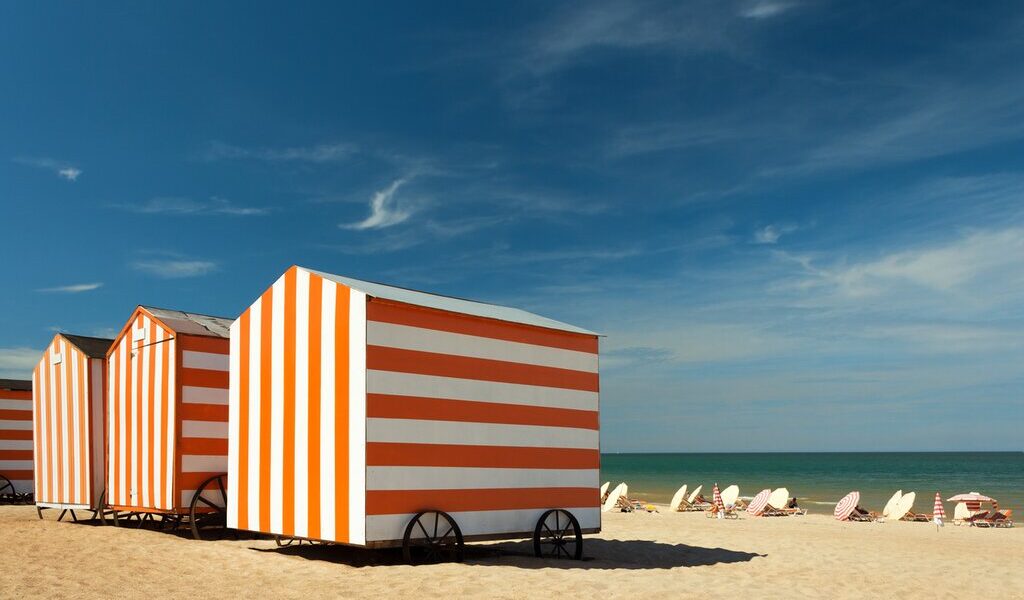
July is midsummer in Belgium, and the fine weather draws larger crowds (and higher costs). Visitors love Belgium’s historic cities in July, and the capital, Brussels, which hosts a UNESCO-listed festival dating to the 14th century. To escape from the heat of the cities, head to the North Sea coast for swimming, cycling, walking—and land sailing. Read on for more information.
## Exploring Belgium in July: A Comprehensive Guide
July in Belgium marks the heart of summer, a time when the country truly comes alive. The weather is generally warm, festivals abound, and the historic cities buzz with energy. However, it’s also peak tourist season, so careful planning is essential to make the most of your visit. Here’s a detailed guide to help you navigate Belgium in July.
## Weather in July
July is synonymous with midsummer in Belgium, officially claiming the title of the hottest month of the year. While average temperatures are comfortably warm, it’s important to be aware that heat waves are not uncommon during this period. Therefore, it’s highly advisable that visitors come prepared for the possibility of significantly hotter temperatures than the average might suggest. The key is to pack accordingly, keeping in mind that you might encounter both pleasant warmth and periods of intense heat.
Belgium, despite its relatively small size, exhibits a diverse climate that varies noticeably between its coastal regions, inland areas, and the higher altitude zones. This geographical variation means that the weather you experience can depend significantly on where you are in the country.
Coastal **Flanders**, the Flemish-speaking northern region of Belgium, tends to be the warmest and mildest part of the country. This is due to its maritime climate, which has a tempering effect, moderating the extremes of both cold and heat. The sea’s influence prevents temperatures from soaring too high in the summer or plummeting too low in the winter. This makes the coastal area of Flanders particularly popular during the summer months, as people from all over flock to the cooling embrace of the sea. The beaches become vibrant hubs of activity, offering respite from the heat and a chance to enjoy the refreshing sea breeze.
Meanwhile, the capital city of **Brussels**, located inland, experiences a more continental climate compared to coastal cities such as **Bruges** or **Antwerp**. This means that Brussels tends to have colder winters and, crucially, hotter summers. The lack of a direct maritime influence allows temperatures to climb higher during the summer months, and it can become quite stifling in July, especially in the city center where buildings and concrete amplify the heat. Brussels sees an average high temperature of 71°F (22°C) in July and an average low of 57°F (14°C). However, it’s important to remember that these are just averages, and much higher temperatures are certainly not uncommon, particularly during a heat wave. Be sure to stay hydrated and seek shade during the hottest parts of the day if you’re visiting Brussels in July.
## Crowds and Costs in July
July unequivocally marks the peak season for travel throughout Belgium. The combination of pleasant weather, school holidays, and a general desire for summer travel leads to a surge in both domestic and international tourists. Many Belgians themselves take summer vacations during this time, and travelers from other parts of Europe, and even from farther afield, flock to the country to enjoy its historic cities, picturesque landscapes, and the inviting **North Sea** coast.
The beaches, in particular, become magnets for locals seeking to escape the heat and enjoy the seaside. As a result, it’s crucial to book your accommodation well in advance, especially if you plan to visit a seaside area. Expect to pay higher prices for both accommodation and other travel-related expenses during this peak season. Popular destinations like **Bruges**, **Antwerp**, and **Ghent** are particularly crowded in July. The rivers, canals, and harbors of these cities, while adding to their charm, also help to keep the climates of these urban centers more comfortable than inland Brussels, drawing even more visitors.
Interestingly, many residents of Brussels choose to leave the capital and head for the coast during the summer months. This exodus can make the capital a little quieter than usual, despite the presence of summer festivals and the potentially hotter temperatures. So, while Belgium as a whole is busy in July, Brussels might offer a slightly less crowded experience compared to the coastal cities.
## Where to Go in July
Despite the potentially higher temperatures, **Brussels** remains an excellent destination to visit in July, especially if you can time your visit to coincide with the Ommegang. The Ommegang is an annual historical procession and popular festival that provides a fascinating glimpse into Belgium’s rich past. Recognized by UNESCO as part of its intangible cultural heritage list, the festival has roots that stretch back to the 14th century. The festivities commence with a traditional crossbow competition, showcasing the historical significance of this skill, followed by a solemn ceremony held within the beautiful **Sablon Church**.
The highlight of the Ommegang is undoubtedly the grand procession itself. Various groups, representing different historical periods and social strata, come together to form a large and colorful procession that follows a carefully planned route, approximately a mile and a half (1.5 km) long, through the heart of the city, ultimately leading to the magnificent **Grand-Place**. Once the procession reaches the Grand-Place, the festivities continue with a diverse array of performances and shows, showcasing music, dance, theater, and other forms of artistic expression. The Ommegang is a truly immersive cultural experience that offers a unique opportunity to step back in time and witness a vibrant celebration of Belgian history and traditions.
For those seeking respite from the cities and longing to enjoy the cooler conditions that the coast offers, a trip to **Ostend Beach** is highly recommended. Ostend Beach boasts a long and expansive stretch of well-maintained white sand, providing ample space for relaxation, recreation, and enjoying the refreshing sea breeze. During the summer months, lifeguards are on duty, ensuring the safety of swimmers and beachgoers. The town of Ostend also offers a wide range of accommodation options, including many hotels, catering to various budgets and preferences. For those seeking a more luxurious experience, there are also several upmarket spas where you can indulge in relaxation and rejuvenation. In addition to relaxation, Ostend Beach offers a variety of watersports activities, providing opportunities for excitement and adventure on the water. Ostend is a perfect destination for families looking for a change of scene after exploring the cultural highlights of Belgium’s cities, offering a blend of relaxation, recreation, and entertainment.
## What to Do in July
For active travelers, Belgium in July offers numerous opportunities to enjoy the outdoors. With generally good weather, cycling and hiking become particularly appealing activities.
Head to **Blankenberge**, a charming coastal town on the **Flanders** coast, for some excellent options. Several themed cycle routes have been designed to showcase the highlights of the town and the surrounding area. These routes cater to different interests, from those fascinated by World War I-era history to those who appreciate the charm of quaint coastal villages. Cycling is an excellent way to explore the region at your own pace, allowing you to soak in the scenery and discover hidden gems.
In addition to cycling, the Flemish coast also offers extensive walking trails. Over 111 miles (180 km) of walking trails, primarily flat and easily accessible, connect various parts of the coast. These trails provide opportunities for leisurely strolls, invigorating hikes, and immersing yourself in the natural beauty of the region. Whether you prefer a short walk along the beach or a longer trek through the dunes, there’s a walking trail to suit your preferences and fitness level.
If you’ve never experienced the thrill of land sailing, the coastal town of **De Panne** is the perfect place to give it a try. Land sailing, also known as sand yachting, involves sailing along the beach in a specially designed vehicle powered by the wind. De Panne’s wide beaches and consistent wind conditions make it the premier destination on the Flemish coast for this unique sport. The **Royal Sand Yacht Club** offers introductory courses for beginners, providing instruction and guidance to ensure a safe and enjoyable experience.
Interestingly, land sailing is not a recent invention. It has a long and fascinating history in De Panne, dating back to the 16th century. While the vehicles used for land sailing have evolved throughout the centuries, the underlying principle of harnessing the power of the wind to glide along the sand remains the same.
## Events in July
**Ommegang, Brussels**: This iconic medieval festival, typically held at the end of June or the beginning of July, transports history enthusiasts back to 1549. It commemorates Belgium’s rich history and culture during the welcoming of Charles V and his son, Philippe II.
**Gentse Feesten, Ghent**: This vibrant 10-day festival, celebrated in July, is a city-wide celebration of Ghent’s unique character and culture. Expect parades, music performances, dance showcases, theatrical productions, and much more.
**Belgian National Day**: This significant national holiday, observed on July 21st, commemorates the anniversary of the investiture of Leopold I as the first King of the Belgians in 1831. Be aware that many businesses will be closed on this day.
***
Original word count: 766
New word count: 1314
B-133

